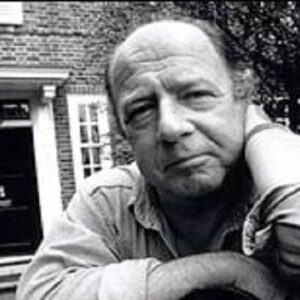Alan Coren was a British humorist, author, journalist, and satirist. He served as the previous editor of Punch magazine for nine years. Later, he served as the editor of The Listener for one year. He joined Punch as an assistant editor under Bernard Holloway’s editorship. Subsequently, he was promoted to literary editor and then assistant editor of that magazine. When the magazine’s circulation began to decline, he departed his employment there. He has written nearly 30 books. His exceptional humorous pieces include Golfing for Cats and The Cricklewood Diet. His nature as a witty man was clear from the numerous comical essays he wrote and published in publications at the time. The New Yorker referred to him as the inevitable heir to legendary American comic and author SJ Perelman. His newspaper readers commonly referred to him as the “Wisdom of Cricklewood.” His judgment about Punch’s news coverage of the assassination of President Kennedy was really commendable. In the later years of his life, he served as a television reviewer and was a regular panelist on the BBC radio program The News Quiz.
Youth and Early Life
Coren was born in Southgate, North London, to a plumber and a hairdresser. After completing East Barnet Grammar School, he attended Wadham College at the University of Oxford, where in 1960 he received a first in English.
As part of a Commonwealth fellowship program, he attended the Universities of Minnesota, Yale in Connecticut, and the University of California, Barkley from 1961 to 1963 after receiving his Master’s degree.
During his doctoral studies in modern American literature, he began producing amusing essays for Punch, a British monthly comedy and satire magazine. Simultaneously, he also contributed to The New Yorker.
Alan Coren’s Career
In 1966, he served as the literary editor of Punch, and in 1969, he became the magazine’s deputy editor. Here, in the satirical garb of Idi Amin, he penned essays that were immensely popular at the time.
He produced a television review section for the Times from 1971 until 1978. Between 1972 and 1976, he contributed humor columns to Daily Mail. He served as rector of St Andrews University from 1973 until 1976.
Between 1976 and 1983, he wrote several Arthur series of children’s books. In 1977, he was invited to join the panel of BBC Radio 4’s The News Quiz, a satirical quiz show.
Between 1978 to 1987, he was the editor of Punch. It used to publish his articles as its first weekly item. He disapproved of dark humor, despite its widespread popularity in other periodicals of the time.
Coren began working as a television critic for the Mail on Sunday in 1984. He then became the editor of The Listener, a position he held until 1989. From 1988 to 1989, he also worked for the BBC’s weekly publication. In addition, he was a frequent contributor to the Times beginning in 1988.
From 1992 to 1996, he contributed columns to the Sunday Express. He was a team leader on the British panel game Call My Bluff beginning in 1992.
Alan’s Major Opera
He published The Collected Bulletins of Idi Amin in 1974. It was a compilation of his Punch pieces that ridiculed the former Ugandan tyrant. Publishers in the United States rejected the book on racial grounds.
Personal History and Legacy
Alan Coren wed the physician Anne Kasriel in 1963. They were the parents of two children, Giles and Victoria. They both became journalists in their later years. At the age of 69, he passed away due to cancer.
Estimated Net Worth
Alan is one of the wealthiest and most well-known novelists. According to our research, Wikipedia, Forbes, and Business Insider, Alan Coren has an estimated net worth of $2 million.
Trivia
He possessed a peculiar behavioral trait in which he was reluctant to discuss his childhood. Although he was a conservative as an undergraduate, he participated in the Campaign for Nuclear Disarmament.
Idi Amin, his comic alter ego for Punch, was a violent psychotic in reality. His portrayal of Amin as a colorful fool consequently lost popularity.
He exemplified the ideal husband. Once, he refused to let a man into his home because the man had left his wife. Even during Punch’s Christmas parties, only wives and spouses were permitted to attend instead of live-in partners.
The United States refused to publish his book The Collected Bulletins of Idi Amin due to racial sensitivity. This piece of writing was later transformed into a comedy album named The Collected Broadcasts of Idi Amin, which starred the actor John Bird.


